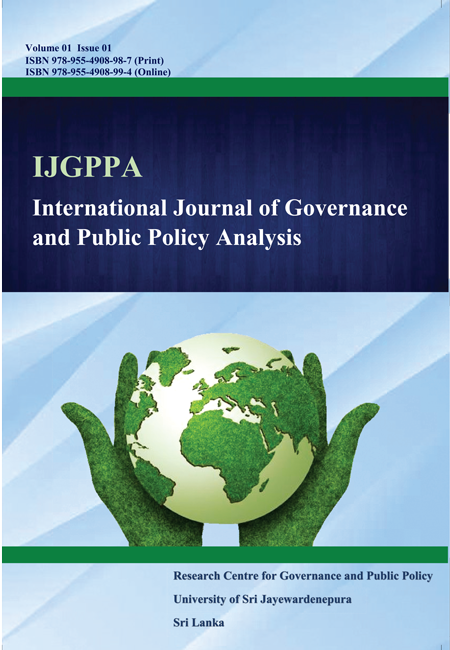Community Perception on Government Responses to Ensure Human Security in Rural Sri Lanka: A Case Study Based on Two Villages in Anuradhapura District
Abstract
Poor governance creates many problems to human lives. People’s awareness on public policies is important as knowledge, failure of addressing public issues implies the failure of public policy. The objective of the study is to identify the perception of rural communities on government response to human security in terms of life, livelihood and health security. Data were collected through a randomly selected sample of 158 individuals from 79 households from two elected divisions in Anuradhapura District. The case study analysis was also carried out based on interviews with 19 individuals from 10 households and data were collected from five informants. The results showed that gender, age and income have influenced the perception of people of the government’s response to rural issues. People do not expect the government’s support for life security and livelihood security of rural communities while for health security, people’s perception is that the government’s support is essential. In conclusion, Sri Lanka needs to focus on human security in formation and implementation of development policies where referent object is an individual.
Key Words: Rural communities, Community factors, Government support and services, Human security

